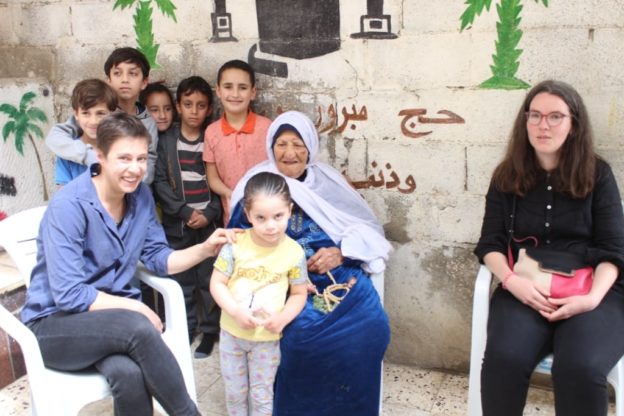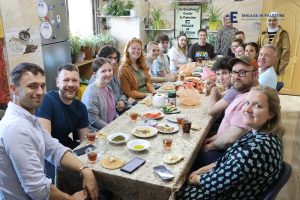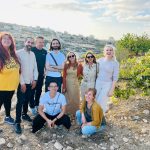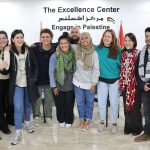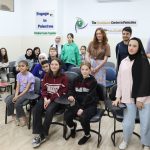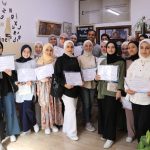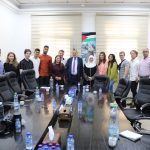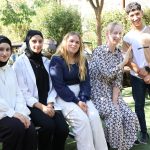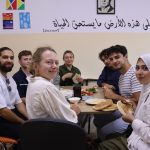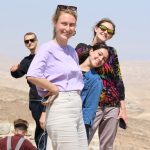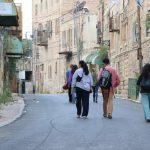The Palestinian culture is closely related to the cultures of nearby countries such as Lebanon, Syria, and Jordan. In this article, we will list the major aspects of the culture of Palestine, such as cuisine, religion, languages, literature, art, costumes, and music.
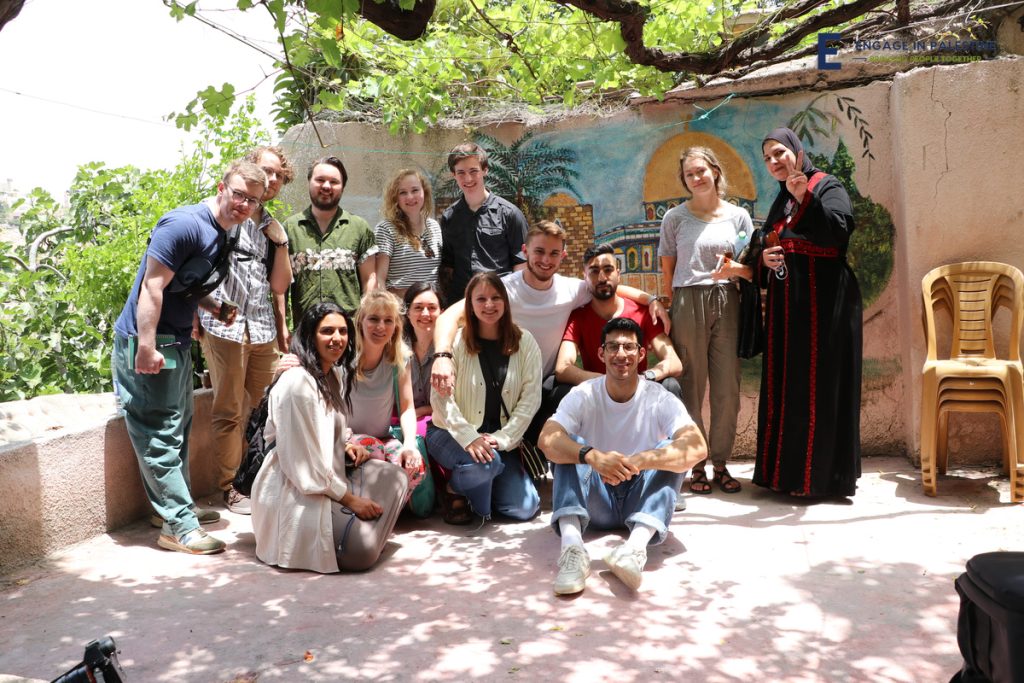
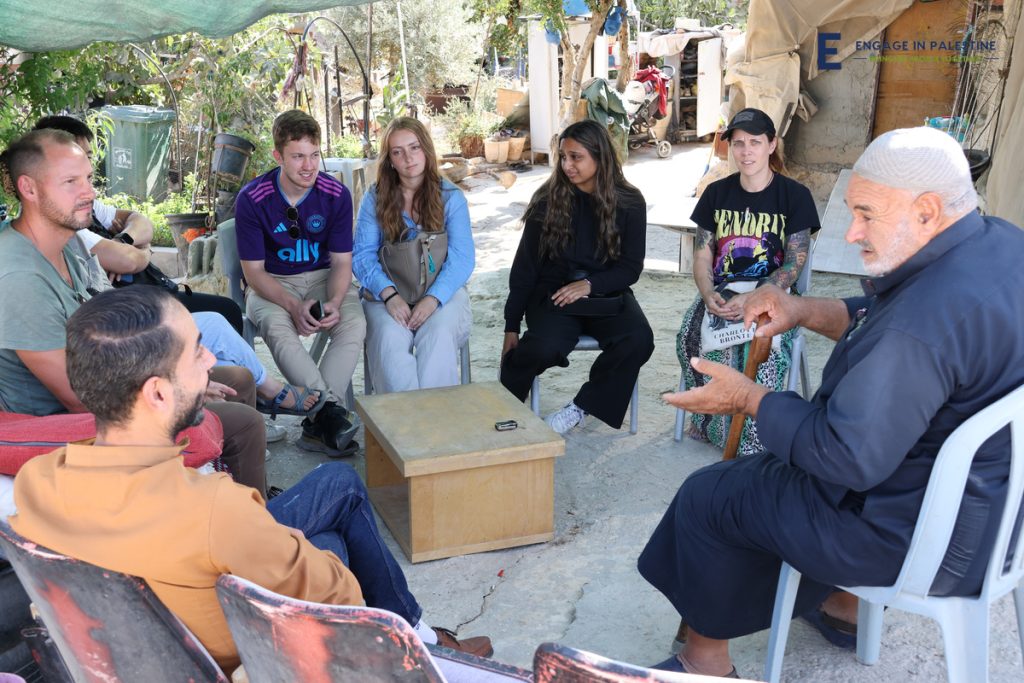
Table of Contents
Cuisine
In Palestine, you can find many rice dishes and variations of kibbeh. In the West Bank, Palestine meals are usually heavy and involve taboon bread, rice, and meat. On the coast, fish, seafood, and lentils are most popular. Palestine is famous for its deserts, especially konafa, a pastry filled with sweet cheese.
Languages
The primary language in Palestine is Palestinian Arabic. It is a subgroup of Levantine Arabic and is spoken by Arab citizens of Israel (Palestinians) and by Palestinians in the West Bank, Gaza, and elsewhere within the Occupied Territories. In the West Bank, due to the many Israeli settlements, Hebrew has become more common. In Jerusalem, Palestinians often speak both Arabic and Hebrew.
The Palestinian Dialect (اللهجة الفلسطينية)
The Palestinian dialect (اللهجة الفلسطينية) is the everyday spoken language and will be understood by the Palestinian people. Some of the words in Modern Standard Arabic are not really used in day-to-day conversation and some people may not understand the more formal language.
| Native speakers | 13 Million Palestinians |
| Language family | Afro-Asiatic > Semitic |
| Dialects | Fellahi; Madani |
| Writing system | Arabic alphabet |
| Dialect varieties | Intelligible varieties of Levantine Arabic |
However, the Palestinian dialect is one of the closest dialects to Modern Standard Arabic. If you have studied this subject or learned some basic phrases in MSA you will find that it is relatively simple to pick up the Palestinian dialect and also, your time studying will not have been wasted. Learning the Palestinian dialect is a great way to build upon your knowledge and expand your language skills.
Religions
Most Palestinians are Muslim, and the vast majority of them follow the Sunni branch of Islam. Palestinian Christians represent a minority of 6%, followed by much smaller religious communities, including Druze and Samaritans. Palestinian Jews today mostly identify as Israelis.
Palestinian Customs
Family
Probably the most important thing about Palestinian culture is the importance of the family. Whereas Palestinians mostly used to live in villages with large extended families, in urban areas they usually lived in smaller family homes. But even in cities, the culture remains family-oriented. Families often gather for meals at least once a week, on Fridays. Grandparents traditionally live with the family of the eldest son.
The extended family in Palestine is the social safety net that the government doesn’t provide. Whether paying for tuition, caring for disabled or elderly members, or supporting an unemployed family member, extended families will make sure everyone is looked after. Palestinians living in the diaspora often financially support their family members still living in Palestine.
The traditional culture is patriarchal, meaning the male head of the family exercises the greatest authority. The pervasiveness of the patriarchy differs per family. Often urban and more highly educated classes adopted a more modern outlook. Conflicts are usually kept private, and it is considered not done to tell others about family-related issues. Elders of both genders are respected and enjoy authority.
Weddings
Weddings are family affairs. After identifying a good match, a family will give the couple some time to get to know each other and decide whether they want to pursue the marriage. In urban areas and the diaspora, couples more often make their own decisions, though always with the blessing of their families.
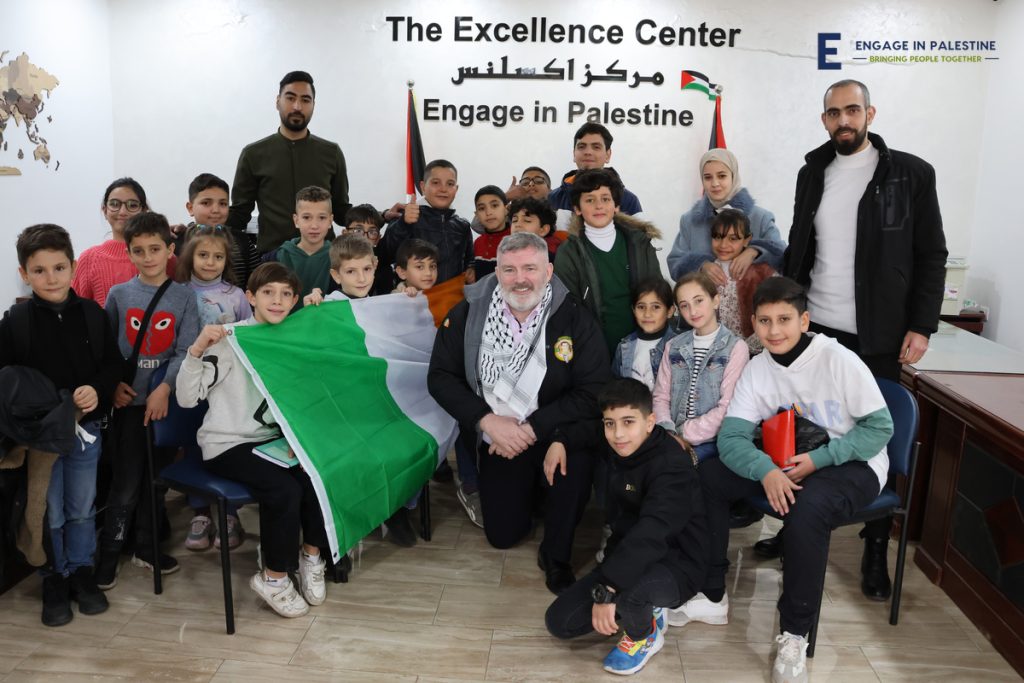
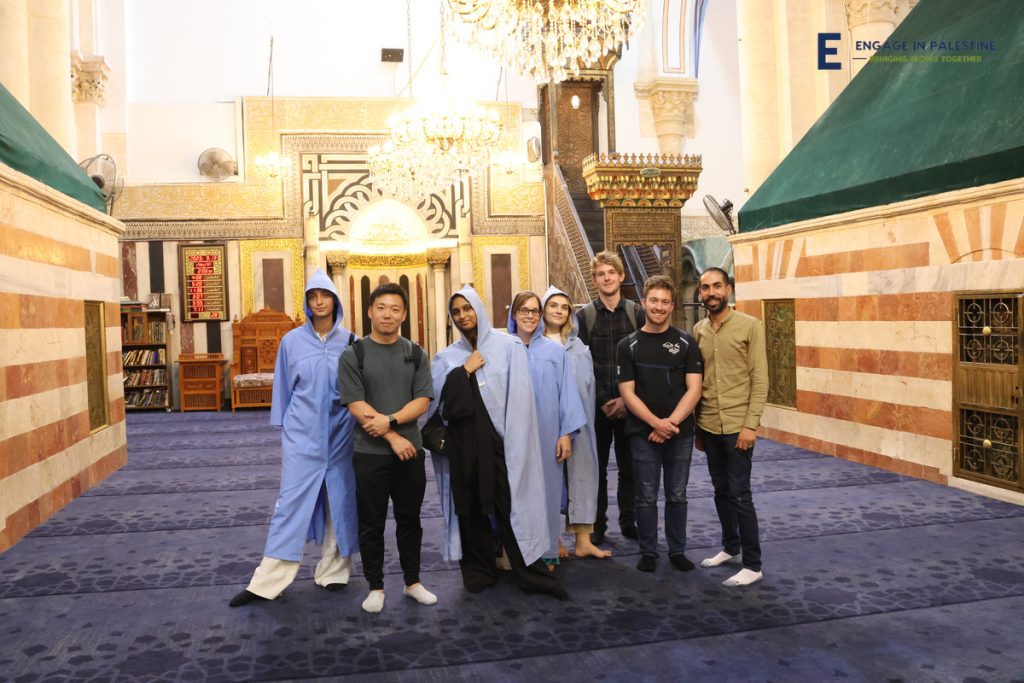
Wedding parties are big events. They can stretch over multiple days and include almost the whole community. It is considered rude not to show up to a wedding, even if it is only from far relatives, so many people attend the feast. Men and women are separated for the entire duration of the wedding.
Hospitality
Palestinians are famous for being very hospitable. You will be invited to have coffee or tea by anyone you meet. Palestinians enjoy meeting internationals, learning about other cultures, and showing them what life is like in Palestine. Taking good care of your guests is regarded as a duty and they will do the best they can to make you feel comfortable.
Do not be surprised if Palestinians invite you for family and cultural activities, such as weddings and picnics. These events will make your trip to Palestine memorable and will teach you about their daily habits and how they spend their time.
During your time here, you will be surrounded by people who are eager to help you enjoy your journey to Palestine. You might hear them saying “Hello” or “Welcome to Palestine” or “How are you?” or help you to find what you are looking for, as a sign of hospitality and eagerness. They want to make sure that you are comfortable and welcomed on their land and among their people no matter which country you come from.
Religion
Religion is a big part of Palestinian society. Most men go to the mosque at least once a week, on Fridays. Seeing men praying on the sidewalks, in shops, and in cafés is not rare. Women usually pray within the vicinities of their homes.
Despite their differing views, Christians and Muslims live alongside one another which lends harmony to the entire Palestine. This harmony imbues Palestine with a special beauty. An example of this harmony is the site of the Church of the Nativity and the Mosque of Omar bin al-Khattab; both share the same location in Manger Square and the heart of Bethlehem City.
Funerals
When a death occurs, guests visit the family of the deceased to pay their respects and reflect on the deceased person’s life while drinking black coffee, served unsweetened for the occasion. It is customary for families to remain in mourning for 40 days, during which time family members wear black.
Muslims believe the body of the deceased should be buried within 24 hours and placed in the ground, facing toward Mecca. Guests pray for the soul of the deceased person during the burial. Afterward, the bereaved family usually hosts a meal and opens their home for three days for guests to visit and share their condolences.
Holidays
Palestinians begin the new year on January 1. And, like much of the world, Palestinians celebrate International Workers’ Day, also known as May Day or Labor Day, on May 1. Although not an official holiday, many Palestinians commemorate Palestinian expulsion and loss of land on Nakba Remembrance Day on May 15.
Palestinian Independence Day and the International Day of Solidarity with the Palestinian People take place in November. Independence Day is a public holiday in Palestine, commemorating the declaration of independence proclaimed, if not achieved, in 1988. Schools, government offices, and many businesses close.
Concluding Thoughts
Visiting Palestine is an exceptional opportunity to meet Palestinian people, experience what daily life is like here, and learn Palestinian Arabic. Moreover, you will get to observe the Israeli occupation first-hand. Palestinian culture is rich. Life is characterized by intensive social relations, religion, hospitality, food, and an eagerness to know others.
Engaging in Palestinian culture is easy, as every Palestinian is eager to show you their culture and learn some about your own in return. Palestinians will highly respect and appreciate you if you visit their country with an open mind and an eagerness to learn about them. We are sure you will have a wonderful and unforgettable stay in Palestine.
Contact Us
Should you have any questions, please do not hesitate to contact us at:
WhatsApp:+972 599 479 880
Website: https://ecpalestine.org/
EC Website: https://excellencenter.org/
Instagram: https://www.instagram.com/excellence.center
Facebook page: https://www.facebook.com/ExcellenceCenter
